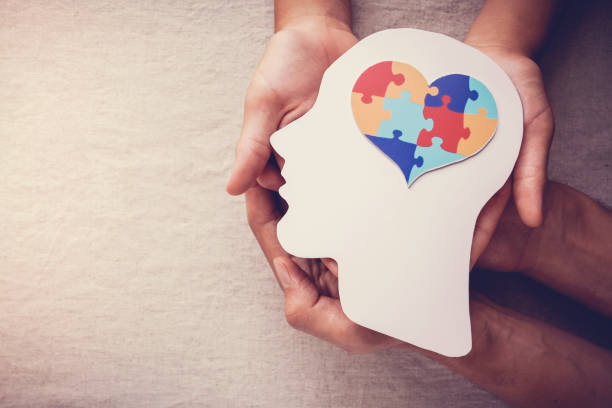
Types of Mental Health Illnesses

Types of Mental Health Illnesses
According to the 2019 reports by World Health Organisation (WHO), 264 million people suffer from depression, 45 million people suffer from Bipolar Disorder and 20 million people suffer from Schizophrenia. Depression, Bipolar Disorder and Schizophrenia are among the innumerable mental health disorders that millions of people suffer from in India and around the world.
Even after being something so common, the National Alliance on Mental Illness estimates that 46% of people who die by suicide had a known mental health condition. This figure is a clear indication that the services and resources available to deal with mental health issues are inadequate and most of these issues, thus remain untreated.
Here, it becomes essential to try and educate ourselves on an issue that plagues many. It is through knowing about mental health issues, can we work towards breaking the stigma that surrounds it.
What are Mental Health Illnesses?
Mental health Disorders, or Mental Health Illnesses refers to a wide range of mental health conditions that affect one’s mood, thinking and behaviour. It affects how people thing, behave , feel and interact with other people.
What are some types of Mental Health Illnesses?
There are many conditions recognised as mental health illnesses. Following are some of the common types, mentioned along with their symptoms:
1. Clinical Depression
Clinical depression is a mood disorder characterised by a persistent feeling of sadness and lack of interest. It is a more serious form of depression and is also know as major depressive disorder.
Symptoms:
A. Constant feeling of sadness
B. Changes in appetite: over-eating or under-eating
C. Loss of interest in activities that were once enjoyed
D. Suicidal thoughts
E. Tiredness
F. Crying spells
G. Significant changes in sleep patterns
2. Anxiety Disorder
Anxiety Disorder is a mental health condition characterised with prolonged feeling of worry,
fear, uneasiness and nervousness. Excessive anxiety hampers with one’s daily activities.
Symptoms:
A. Constant worry and fear
B. Irritability and restlessness
C. Feeling of impending danger
D. Insomnia
E. Feeling weak and tired
F. Experiencing Gastrointestinal problems
G. Lack of concentration
3. Bipolar Disorder
Bipolar disorder is characterised by feelings of extreme high (hypomania) and lows
(depression). It causes major shifts in a person’s mood.
Symptoms:
A. Mood swings: cycles of feeling high & low
B. Feeling angry & irritable
C. Changes in sleep patterns
D. Changes in appetitive: weight loss or gain, Racing thoughts & delusion, Feeling intensely excited (euphoria)
4. Eating Disorder
Eating disorder is a range of psychological disorder characterised by unusual eating habit.
The most common type of eating disorder is anorexia nervosa, people suffering from which
assume themselves to be over weight even after being dangerously underweight.
Symptoms:
A. Experiencing hyperphagia or feeling excessively hungry
B. Loss of appetite
C Low self esteem and anxiety
D. Depressive thoughts
E Frequently looking at the mirror & pointing flaws
F. Over- exercising
5. Obsessive Compulsive Disorder
Obsessive compulsive disorder or OCD is characterised by assertive thoughts that force one
to undertake repetitive actions, to the point that it’s psychologically or physically painful.
Symptoms:
A. Excessive doubting & feeling of uncertainty
B. Repetitively doing the same thing
C. Aggressive thoughts of losing control
D. Unwanted thoughts
E. Feeling dirty and contaminated by touching objects that others have touched
6. Psychosis
Psychosis refers to a mental health condition that is characterised by abnormal thinking and
perceptions which causes one to lose touch with reality.
Symptoms:
A. Difficultly concentration
B. Intrusive thoughts
C. Hallucinations
D. Anxiety and depression
E. Changes in sleep patterns
F. Suicidal thoughts
7. Post-Traumatic Stress Disorder
Post-Traumatic Stress Disorder or PTSD is characterised by the inability to recover from a
horrific incident. It triggers memories of the events causing intense physical and/or
emotional pain.
Symptoms:
A. Intrusive thoughts which are reminders of the event
B. Feeling afraid and detached from others
C. Irritability and hostility
D. Insomnia or nightmares
E. Feeling guilty or lonely
Conclusion
It is essential to understand that just like physical ailments, it is equally important to address
mental health issues. Timely medication and professional assistance can help an individual
suffering from such issues to recover from it and lead a better, happier life.
As a society, it is important to have open, candid conversations and as an individual, it is
important to seek help. As Mariska Hargitay rightly said, “Healing takes time, and asking for
help is a courageous step.”






